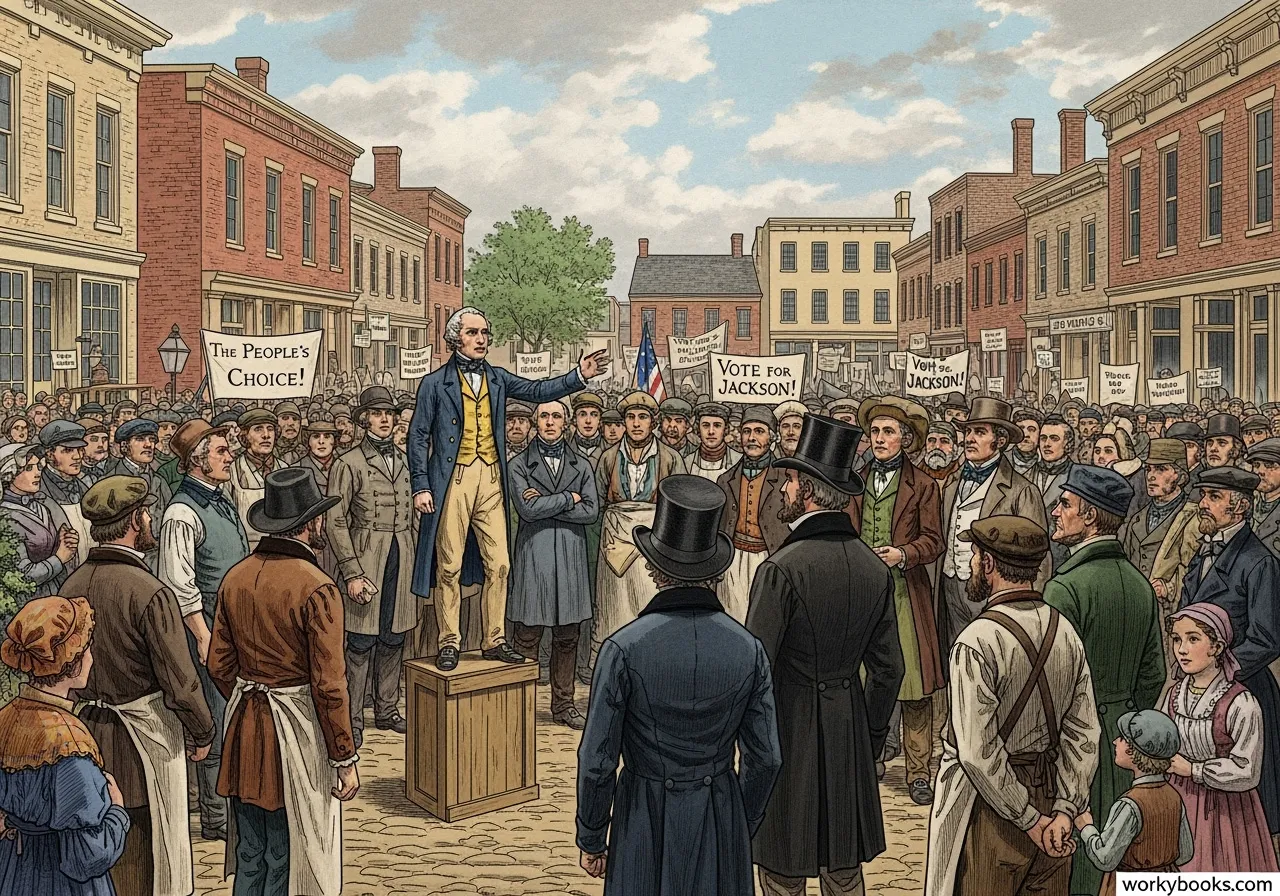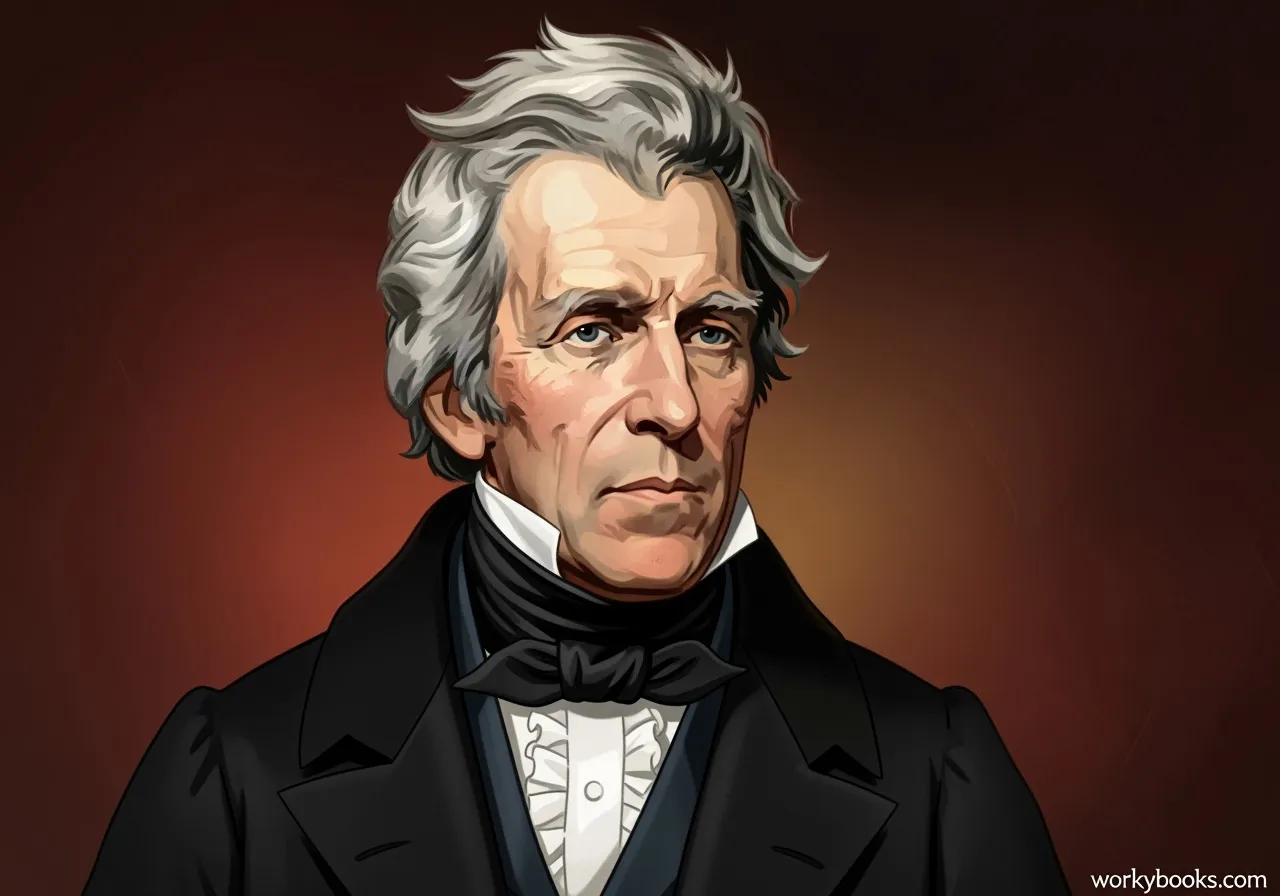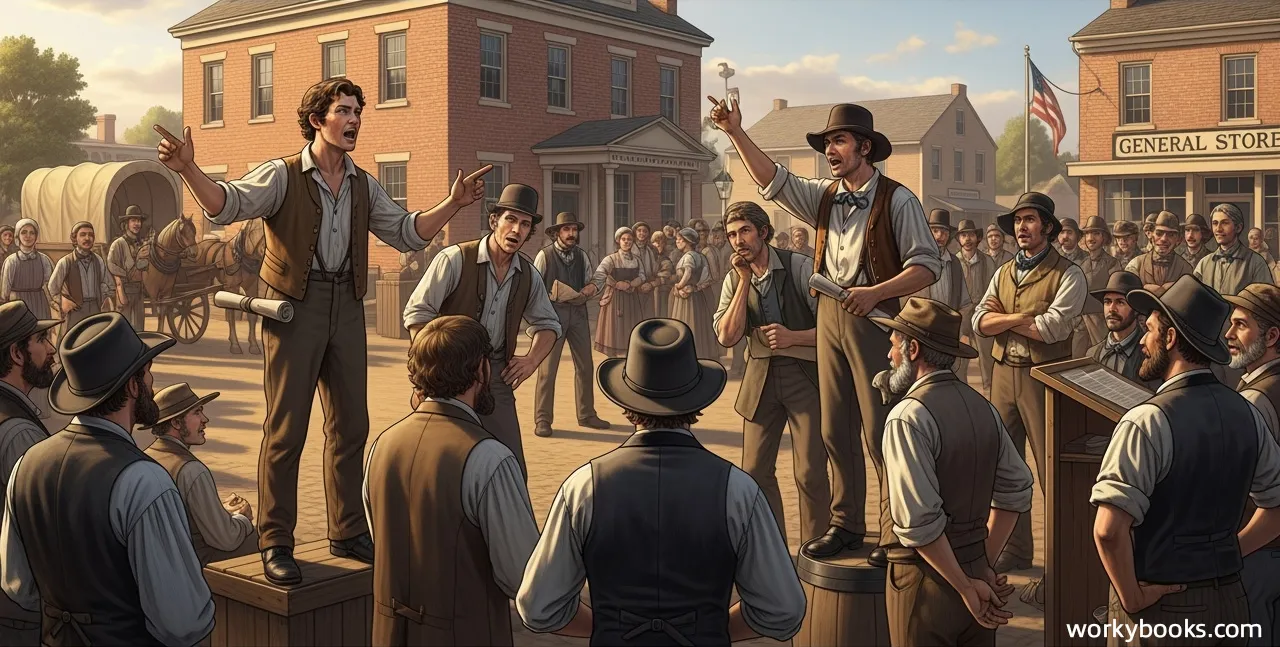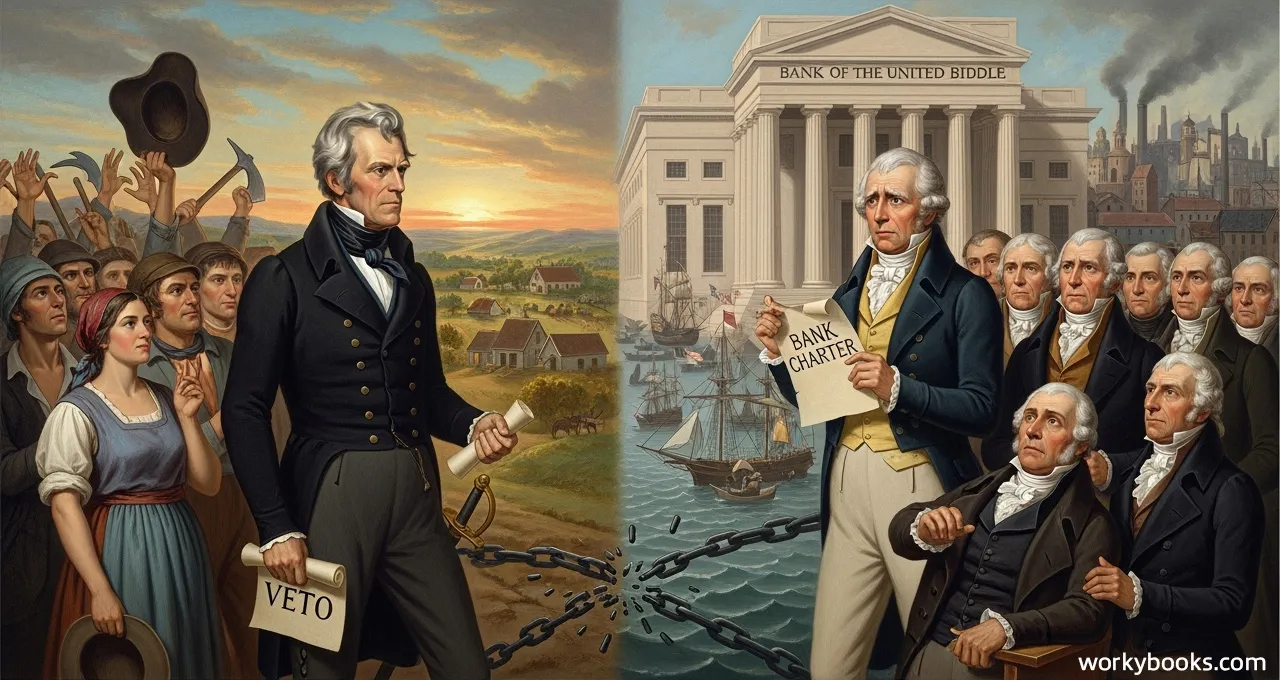Jacksonian Democracy
Learn how American politics changed in the 1820s-1840s and the rise of the "common man"
What Was Jacksonian Democracy?

Jacksonian Democracy was a political movement in the United States during the 1820s to 1840s that emphasized greater democracy for the "common man." It was led by President Andrew Jackson and his supporters, who believed that ordinary people should have more power in government.
Before Jacksonian Democracy, voting was mostly limited to wealthy white men who owned property. Jackson and his supporters worked to eliminate property requirements for voting, which allowed more white men to participate in elections regardless of how much money they had.
Did You Know?
During the Jacksonian era, the percentage of white men who voted in presidential elections increased from about 27% in 1824 to 80% in 1840!
Expanded Voting Rights
Most states eliminated property requirements for white male voters
Popular Political Participation
Rallies, parades, and campaigns targeted ordinary citizens
Opposition to Elites
Jackson positioned himself against wealthy bankers and established politicians
Andrew Jackson

Andrew Jackson was the seventh President of the United States, serving from 1829 to 1837. He was born in 1767 in a log cabin on the frontier, which helped him connect with ordinary Americans. Jackson became a national hero after winning the Battle of New Orleans during the War of 1812.
Jackson was nicknamed "Old Hickory" because he was as tough as hardwood. He was the first president who wasn't from a wealthy, established family from Massachusetts or Virginia. His background as a self-made man appealed to many Americans who felt that previous presidents were too aristocratic.
Birth
Andrew Jackson born in the Waxhaws region on the border of North and South Carolina
War Hero
Jackson wins the Battle of New Orleans, becoming a national hero
Elected President
Jackson wins presidential election, marking beginning of Jacksonian Democracy
Retirement
Jackson retires to his Hermitage plantation in Tennessee
Era of the Common Man

The Era of the Common Man describes how Jacksonian Democracy made American politics more inclusive for ordinary white men. Before this period, many people believed that only the wealthy and well-educated should govern. Jackson and his supporters argued that common sense and practical experience were more important than formal education.
During this era, political parties began holding conventions to select candidates instead of having small groups of politicians make the decisions. Campaigns started using slogans, buttons, and rallies to appeal to voters. This was very different from earlier elections, which were more formal and reserved.
Key Changes During the Era of the Common Man
- Property requirements for voting were eliminated in most states
- Presidential electors were chosen by popular vote instead of state legislatures
- Political parties began nominating candidates through national conventions
- Campaigns started targeting ordinary voters with rallies and symbols
The Spoils System

The spoils system was the practice of rewarding political supporters with government jobs. The name comes from the saying, "to the victor belong the spoils," meaning the winning side gets to enjoy the benefits. When Jackson became president, he replaced many government officials with people who had supported his campaign.
Jackson believed this system was more democratic because it prevented a small group of wealthy people from controlling government jobs for generations. He argued that ordinary Americans were capable of serving in government positions and that rotating jobs would prevent corruption.
Rewarding Supporters
Jackson replaced about 10% of federal officeholders with his supporters
Democratic Rotation
Jackson believed government jobs should rotate among citizens
Controversy
Critics argued this system rewarded loyalty over qualifications
While Jackson saw the spoils system as democratic, his critics worried that it put unqualified people in important positions. The spoils system remained common in American politics until the late 1800s, when civil service reforms created competitive exams for government jobs.
Bank of the United States

One of the biggest conflicts during Jackson's presidency was the Bank War - his battle against the Second Bank of the United States. Jackson believed the bank was unconstitutional and favored wealthy easterners over ordinary Americans and western farmers.
The Bank of the United States was a powerful institution that held government funds and could issue money. Jackson argued that it had too much power and wasn't accountable to the people. He vetoed a bill to renew the bank's charter in 1832 and eventually removed federal money from the bank.
Second Bank Chartered
Congress establishes the Second Bank of the United States
Bank Veto
Jackson vetoes bill to renew the bank's charter
Removes Deposits
Jackson orders federal money removed from the bank
Bank Closes
The Second Bank of the United States closes when its charter expires
Jackson's victory in the Bank War was popular with his supporters, who saw it as a triumph of the common people over powerful business interests. However, the elimination of the national bank contributed to economic instability in the years that followed.
Jacksonian Democracy Quiz
Test your knowledge about Jacksonian Democracy! Answer all 5 questions to see how much you've learned.
Frequently Asked Questions
Here are answers to common questions about Jacksonian Democracy:
Jacksonian Democracy Trivia
Discover interesting facts about Jacksonian Democracy!
Record Voter Turnout
The 1828 election that brought Jackson to power saw voter turnout more than double from the previous election, from about 27% to 58% of eligible voters.
White House Party
After Jackson's inauguration, so many supporters came to the White House that they stood on furniture with muddy boots, causing thousands of dollars in damage.
Modern Democratic Party
Jackson's supporters organized the modern Democratic Party, making it the world's oldest active political party. Jackson was the first Democratic president.
Pet Banks
After closing the national bank, Jackson deposited federal money in state banks that his opponents nicknamed "pet banks" because they were loyal to Jackson.





